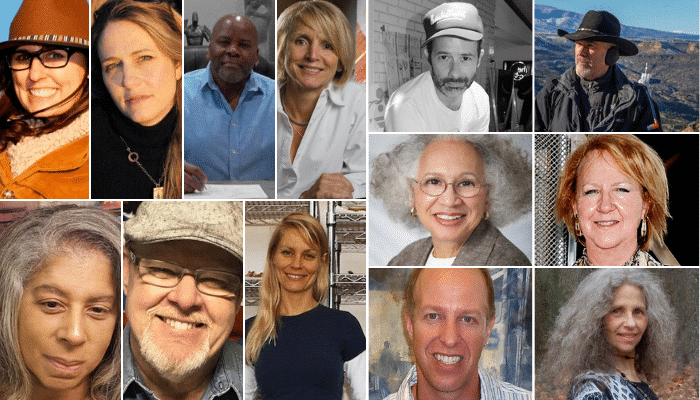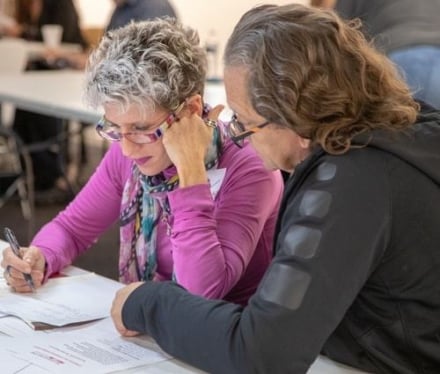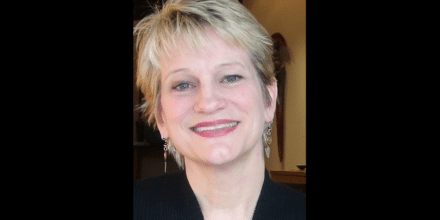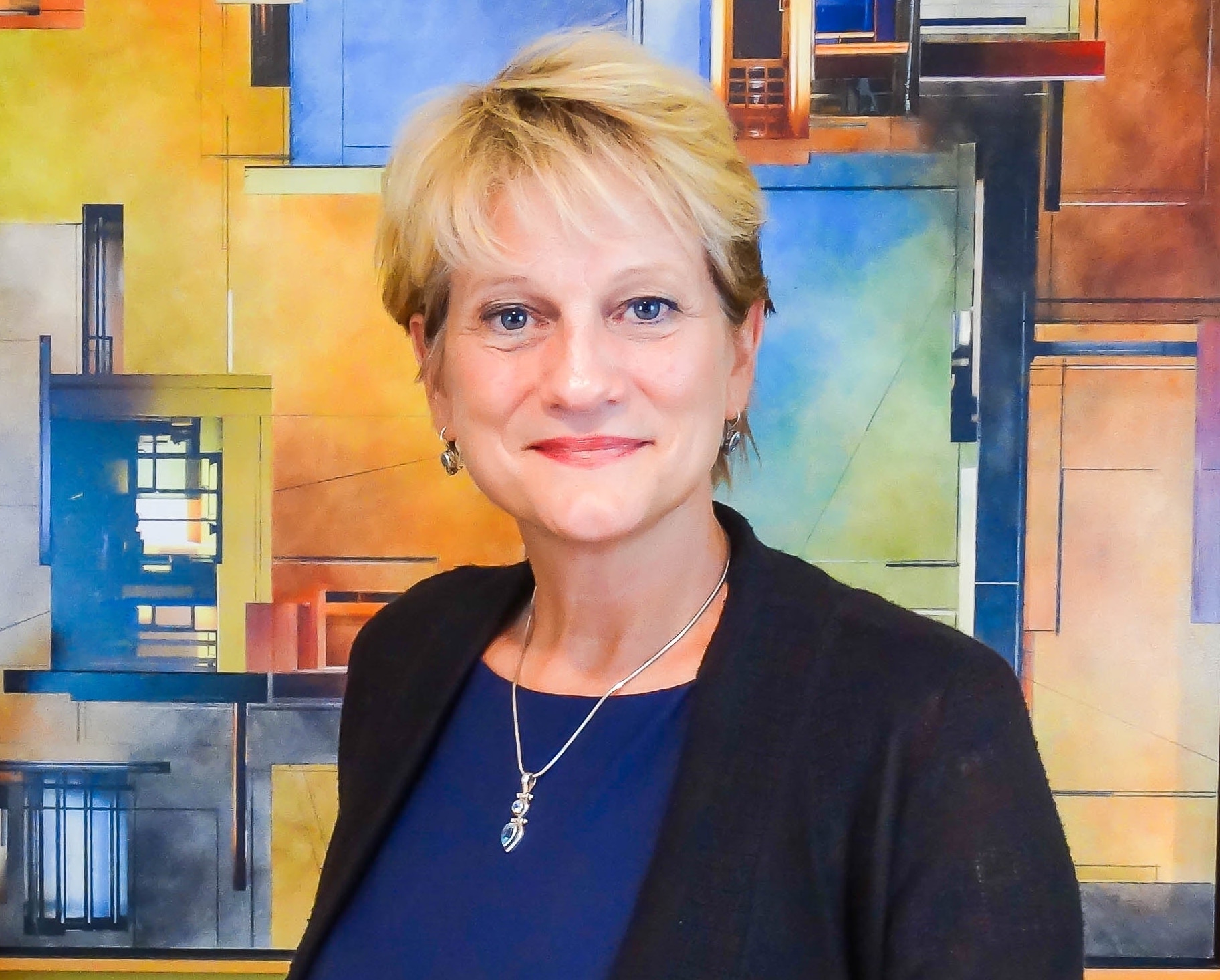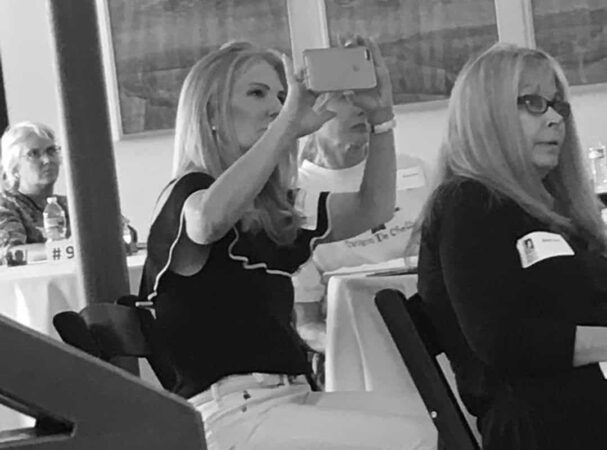Find out how working artists become thriving artists. This is the biggest podcast we’ve ever recorded, featuring 18 voices: the graduating class of our most recent Art-Business Accelerator cohort, their Advisors, and CHF team members Daniel DiGriz and Elizabeth Hulings. 1:25-3:00 is a “walk across the graduation stage” celebration moment for each Fellow. The episode is packed with the artists’ insightful observations about the triumphs, challenges, community, and skill-building involved in developing a successful creative career, and the role CHF has played in the process. Elizabeth Hulings says: “We’re seeing some major projects here that have legs and are going to be important. I really do believe that these artists are going to continue to build on the momentum that they have, and achieve some of these big goals. And that’s really exciting.”
The Value of Artist-Peers & Teams
- “The team has been a huge support to me. There was an opportunity that came my way that I was thrilled about, but terrified. I didn’t see how it could benefit me financially, and I wasn’t sure I wanted to participate in it. And just talking it through with my team, they all were encouraging me and helping me to see my blind spot, really. Discussion with my peers helped me so much—these are people I respect, and that encouragement meant so much to me, that it ultimately wound up being my pivotal project. I’m very thankful, I wouldn’t have had that without that particular conversation on the phone with my team.” – Steven
- “The fellowship program offers some really comprehensive, very successful strategies. But working in teams, what resonated for me is that in getting to know each other we could really identify the sensitive aspects that each of us had. And we were able to walk through maybe some embarrassing moments or some real difficulties that some of us had to figure out how to personalize the strategies and protocols. So to me, that was very meaningful. That human direct connection that takes into account who you are and what your motivations and intentions are.” – Robin
- “There’s so much in this business about personal recommendations, personal introductions. And I have found that to be one of the most valuable parts of this. Not only meeting the other artists, but any way that they can help to introduce buyers or galleries. And I hope I’ve been able to do that to a couple of my compatriots here, but I find in this business that personal recommendation is the most important for me and the one thing that I’ve gotten most out of this.” – Tim
What Does A CHF Accelerator Fellow Artist Do After Graduation?
- “I am going to pursue my pivotal project, which was to build an addition on my studio so I can create larger sculptures. And I’m grateful to this program for helping to solidify my thought process about that—and also spurring me into action and holding me accountable.” – April
- “I’m definitely going after my pivotal project. This was an idea that I cooked up about 12 years ago and I kind of let it fall by the wayside. And being with CHF and getting the encouragement in the direction that I did, I am definitely doing this in the coming year. […] The thing that was so helpful to me was the creation of an action plan through the career blueprinting. Because it gave me the ideas to get organized and give me step-by-step of what I’m going to do throughout the year.” – Sharon
- “It was a total mind-shift this year, where the brand-story was so critical. The things I wanted to paint, versus what I was selling…I was seeing what I wanted to paint as sort of a negative. And now I see it as a way to differentiate myself. And that, that is something that I should be putting all of my energies into. There is a market for what I want to do. Like I said, it was just a total mind-shift on that. And I am selling them. There are buyers for the subject matter that I want to paint. So yeah, it’s been really great that way.” – Carrie
Highlights of the CHF Accelerator Experience
- “The very best thing to me was the weekly conference calls. Being able to stay on track with my goals and my perspectives, and having all the stuff we were learning reinforced every week was so extraordinarily useful for me. Whereas in the past, I’d start out the year with you know, grand plans and ideas and blah-blah-blah, and then business as usual kicks in and life kicks in and then I lose track of what those were. But being able to redirect it each and every week was just instrumental on me being able to stay on track and it’s made a huge, huge difference for me this year.” – James
- “I give very high points for the process of doing my brand story. It helped clarify a lot of things for me. It clarified what some of the connections are between the pieces that I’ve selected to do over the years. It also clarifies my thinking when I have to make a decision about what to do next.” – Maneulita
- “I think the thing that I liked best was the process of clarifying our business objectives. It was a very organized and informative process that really allowed us to kind of dig in and figure out what steps were necessary. I loved the idea of envisioning where we wanted to be and then looking around—in our imagination—one year, two years, five years from now and saying, what did I do to make this happen? And then go: okay, well now I need to do those things. That was really a wonderful tool that I’m going to use a lot.” – Jonathan
Professional-Level Networking
- “Our group, Absolute Red, will continue to work together. And what thrills me about that is, obviously as artists we’re isolated. We do work alone and most of us like that. I’ve learned the importance of having a network. It’s been really cool learning the different strengths and weaknesses that we each have, and how, through a network, we can lift each other up in those weak areas and encourage each other with the strengths that we have.” – Terri
- “I think that one of the beautiful things about this Fellowship is, when I was listening to the other Fellows ask questions and talk about their challenges, it may not have been issues that really are anything that I’m dealing with now, but taking notes, I know for the future whom I might contact should I have something to deal with down the line. – Robin
- “The program has helped develop my skill in working with a small group. I was already involved in a few groups, but I was not using that interaction effectively. And since the advice and the practice that I’ve been getting, it’s become much better.” – Manuelita
- “I feel like the whole experience of sharing with individuals and teams here makes me more open to even asking local people, here where I am in Woodstock, for sessions to share ideas and bat things back and forth together. And I just feel much less like I would be bothering them, but more that we would be enriching each other’s lives to do this. – Karen
Advisers’ Experiences
- “When I was in the [Accelerator] program [myself], it felt like I was climbing Mount Everest, and there were so many steps and so many slips and falls. After doing that, being an adviser—I see it more like being a Sherpa. You know, the Sherpas are the one who go up the mountain all the time, you know, people don’t make it to the top of Everest, maybe they do, maybe it’s their life’s achievement. The Sherpa, that’s their job. They keep doing it and they learn that mountain inside and out. And I think as an advisor not only were we helping new Fellows, we also were relearning steps to reclimb Everest. Which has just added another level to my art career.” – Greg
- “My experience is…the one word I would use is inspired. Inspired by the talent of the artists in my group. Inspired by their persistence. And inspired by their growth. And it was a real honor to observe everybody’s challenges and struggles and watch them grow through them.” – Nadia
Why this Program is so Important Now
- “Throughout our entire history as a species, we have succeeded by marrying a good idea to a solid plan and then implementing it. So it always starts with the idea. And unless we create the conditions in which people can have good ideas and have those ideas be respected and we can take them to market and we can implement them, we’re just not going to survive and neither is our planet.
So that’s a big-guy existential reason that I think this is just essential. I think on a more micro level, as the way we work and the way we live shifts: more and more technology, AI, different ways of working, the gig economy, all of these things, the globalization—we have to rely more on ourselves and our interpersonal relationships to succeed. We have to be able to break things down and analyze them and be strategic.” – Elizabeth Hulings
Congratulations to Tim Saternow, Robin Holder, April Wagner, Steven Lester, Karen Whitman, Manuelita Brown, Jonathan Keeton, Andie Freeman, James Moore, Adreon Henry, Carrie Cook, Terry Albanese, and Sharon Crute!

